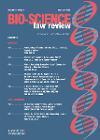Bio-Science Law Review - Volume 16 - Issue 3

Articles
PATENTABILITY OF PLANTS UNDER THE EPC: ACT IN HASTE, REPENT AT LEISURE?
Mike Snodin Park Grove IP Ltd, Nottingham
The author discusses whether changes to Rules 27 and 28 of the Implementing Regulations to the EPC are 'safe' from the perspective of EU and human rights law, and whether they will be effective in overturning prior, judicial interpretations of Article 53(b) EPC.
BROCCOLI AND TOMATO: A NEVER-ENDING STORY?
MICHAEL A. KOCK Syngenta International AG, Switzerland
GARETH MORGAN CMS Cameron Mckenna, Nabarro Olswang LLP, London
In June 2017, the Administrative Council of European Patent Office decided to amend the Implementing Regulations of the European Patent Convention to exclude from patentability plants and animals exclusively obtained by an essentially biological process. This article discusses the justification for the new rules from the perspective of substantial law and the possible way forward.
ACTIONS REGARDING 'EXCESSIVE PRICES': COMPETITION AUTHORITIES FLEX THEIR MUSCLES
RICHARD CRAIG Taylor Wessing LLP, London
After a long drought, it appears that the heavens have opened on investigations into excessive pricing by dominant companies. Not for the first time, the pharmaceuticals sector should brace itself for the storm.
ALCHEMY IN THE UK: THE SUPREME COURT IN ELI LILLY VACTAVISTRANSMUTES SODIUM INTO POTASSIUM BUT WILL IT PROVIDE GOLD FOR PATENTEES?
BRIAN WHITEHEAD AND STUART JACKSON Kempner and Partners, Leeds
In what is almost certainly the most important UK patent law decision since Kirin-Amgen, the Supreme Court has introduced, for the first time, an express 'doctrine of equivalents' into UK patent law. The Supreme Court has also given limited approval to the idea of using the patent prosecution history as a guide to patent construction. The authors review the previous UK approaches to patent construction, analyse the lower courts' and the Supreme Court's decisions in this case, and consider the implications of this seminal decision on patent infringement actions.
IS THERE A FUTURE FOR MEDICAL DEVICE SPCS? PAST, PRESENT AND FUTURE PERSPECTIVES
ANDREW HUTCHINSON, NICHOLAS FISCHER AND PHILIPP SCHRÖLER Simmons & Simmons
Supplementary Protection Certificates (SPCs) have on occasion been sought for medical devices, forcing granting authorities and courts across Europe to consider the question: are medical devices included within the scope of the SPC system? These cases have produced inconsistent outcomes. The European Commission's study into the SPC system and the new EU medical device regulations bring into the spotlight the scope of the SPC system and the regulatory regime relating to medical devices. This article reviews UK and European cases on the ability of the SPC system to be applied to medical devices and considers the main issues faced by such applications. It also considers whether now might be the time to introduce a new system for 'medical device SPCs'
Case Comments
US SUPREME COURT PROVIDES LIMITED GUIDANCE REGARDING BIOSIMILAR PATENT LITIGATION
BRIAN COGGIO AND TASHA FRANCIS Fish & Richardson, New York
This comment summarises the US Supreme Court's 2017 decision in Sandoz v Amgenthat interpreted two key provisions of the Biologics Price Competition and Innovation Act governing FDA approval of biosimilars. The court held that the biosimilar applicant need not provide its application and related process information to the brand owner and therefore the so-called 'patent dance' is optional. The court also held that the applicant can provide the required 180-day notice of commercialisation even before its biosimilar drug receives FDA approval.
PATENTS COURT CAN HEAR CLAIM CONCERNING SCOPE OF US PATENT IN LICENCE DISPUTE
NINA O'SULLIVAN Mishcon de Reya LLP
The English courts have demonstrated that they are willing to consider issues of infringement of foreign IP rights, but the position is very different in respect of validity. In Chugai Pharmaceutical v UCBit was argued that a dispute over the terms of a licence was a dressed up claim of invalidity. In considering the competing arguments, the court considered a number of interesting principles relating to jurisdiction over foreign patents, including comity, the act of state doctrine and commonly used jurisdiction clauses in patent licences.
